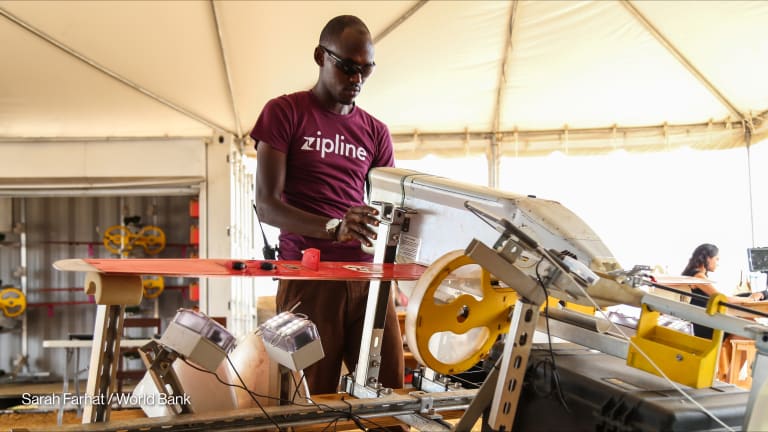Not too long ago, Zipline’s operations would have sounded like science fiction: Sleek, near-silent drones are catapulted into the skies from a Kigali warehouse, sail over Rwanda’s mountainous topography, and deposit their cargo — blood, vaccines, medical devices, and the like — to hospitals and other destinations via parachute. The result is lightning-fast delivery, significantly less waste, and lives saved.
In Rwanda alone, Zipline’s contributions have been significant: Zipline CEO and co-founder Keller Rinaudo Cliffton tells Devex President and Editor-in-Chief Raj Kumar that in the 10 years since the company’s launch, its technology serves nearly 4,000 hospitals and health facilities, made 13 million vaccine deliveries, and is responsible for transporting 75% of the country’s national blood supply outside of Kigali.
Cliffton sees technological innovations like Zipline as essential to making meaningful headway on the U.N. Sustainable Development Goals. “I do think it’s fair to say that we have been too slow to adopt new technology,” he said during an interview at the Clinton Global Initiative summit on the sidelines of the U.N. General Assembly last week. He added that current funding mechanisms tend to reward traditional solutions that maintain the status quo.


